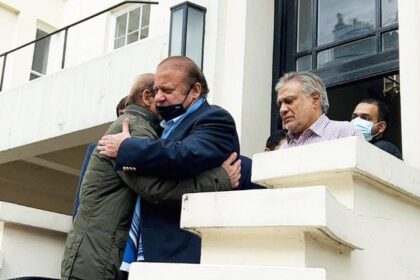In an age of political division and social turmoil, few words are as overused—and misunderstood—as empathy. From presidential speeches to Instagram captions, “empathy” has been positioned as a moral compass, a unifying force, and even a political solution. But while empathy is essential for human connection, it is not, in and of itself, a political strategy. It is a feeling, not a policy. A moral gesture, not a structural remedy.
To say “empathy is not a politics” is not to diminish the value of empathy but to clarify its limits. Empathy is the ability to imagine someone else’s suffering; politics is the work of dismantling the systems that cause it. Empathy might move you to tears when you hear about a refugee’s journey—but politics determines whether that refugee is granted asylum or turned away at the border.
Although it can’t be denied that empathy is an essential human emotion and should be present in some political stances, is it possible that empathy has begun taking over our understanding of the political world?
Empathy can become a performance—particularly in digital culture. Politicians, influencers, or corporations may express solidarity through emotional statements or symbolic gestures (like hashtags or symbolic protests) without enacting or demanding meaningful policy changes. This creates the illusion of progress—without substance.
Empathy is inherently selective. We empathise more easily with people who look, speak, or live like us. This leads to skewed public attention: for instance, a natural disaster in a Western country might provoke far more international empathy—and aid—than a similar crisis in the Global South. Media plays a crucial role in amplifying certain stories over others, reinforcing biased global sympathies.
Empathy can also lead to injustice. It can push politicians—who are supposed to be firm in decisions—to feel bad for individuals who should be held fully accountable for their actions. For example, if a police officer murders a civilian based on clothing or race, feeling empathy for the officer and excusing him as “scared” obstructs justice.
Moreover, empathy is often biased. If history is any indicator, politicians are more likely to empathise with those who share their characteristics—race, class, background—rather than those who don’t. Political decisions must be made by viewing the world holistically—not selectively. Empathy, when biased, reinforces hierarchies, class divides, and superiority complexes rather than dismantling them.
Politics must be rooted in principles—not emotions. Principles like equity, rights, and accountability. Where empathy falters, policy must persist. It’s also important to acknowledge that not everyone has the luxury to just feel. For the oppressed, survival demands action, not sentiment. A marginalised person cannot afford to only empathise—they must fight, organise, and resist.
The influence of social media and modern technology cannot be ignored either. Online activism reflects this trend. Words like “safe space”, “trauma-informed”, “ally”, and “validation” dominate the language of social justice today. And while these ideas matter in moderation, they often eclipse political literacy. Instead of asking, “What must we dismantle?” we ask, “How do you feel about it?”
Empathy is a powerful emotional tool—but when it becomes the dominant lens through which we view politics, it can distract, distort, and de-politicise. To truly address injustice, we need more than feeling—we need clarity, strategy, accountability, and systems thinking.
As writer and activist Audre Lorde once said, “Caring for myself is not self-indulgence. It is self-preservation, and that is an act of political warfare.”
In other words, care and emotion have their place—but they must be grounded in action. Empathy can inspire, but it must never replace a politics of justice.
What was once political has become therapeutic. Movements for land, labour, and liberation have been rebranded into personal journeys of growth and emotional hygiene.
Being “triggered” replaces being oppressed; being “seen” replaces being organised. We swap material change for emotional legibility. We must reintroduce structure into our movements. Political education must return. Strategy must be taught. Power must be mapped. And solidarity must mean more than feeling someone’s pain—it must mean standing with them until the pain ends. Through policy. Through resistance. Through transformation.
Empathy can be the beginning. But it must never be the end. Because to be understood is comforting. But to be freed is everything.
















